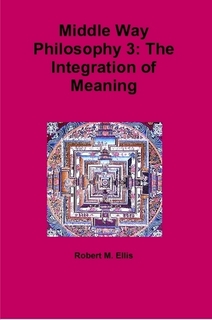Since Christmas is approaching, I have chosen a mother and child portrayal to discuss, Maternity, by Marc Chagall.
Marc Chagall was born as Moishe Segal in a Russian village called Vitebsk in Belarus. His parents were poor Hasidic Jews and Chagall himself remained a devout Jew throughout his long life.
Since Jesus was born of Jewish parents, I think this work may be relevant and an interesting change from the madonna and child works to be found in the Christian tradition. Chagall was encouraged by his mother to follow his dream to become an artist. After becoming engaged to a local girl called Bella, he set off to live in Paris, which was the hub of artistic activity at that time, in 1914 he returned to his native village to marry Bella and found himself stuck there during WW1. I think it was in 1923 he returned with Bella to Paris, there he painted memories of his village, dreams and experiences, in which proportion and gravity played a very minor role. He created colourful patterns, where his interior world is just as real as everyday reality. In this lithograph, we see a picture full of nostalgia and joy, it is a loving scene of mother and child, set outside a pink house with an unknown man in the background, a strange purple and green tree and a donkey on which sits a bird, by coincidence donkeys are often portrayed in nativity scenes. He used bright, warm colours to express emotion and feeling. Chagall was a ‘one off ‘ artist, a painter-poet, a Slav expressionist, whose work was to influence many Surrealist artists, although Chagall would resist analysing his work. He gathered together colour, line, shape and texture and by doing this he brings about balance, ‘he brought back the forgotten dimension of metaphor into French formalism.’
Monthly Archives: December 2013
Internet communication
So far on this website, we’ve got by without any of the rules of discussion that most blogs, forums, etc. seem to need. I was keen not to introduce them unnecessarily, and indeed, the discussion on the website itself so far has been almost without exception thoughtful and civilised. However, I’ve just had a discussion on our Facebook page that left me feeling decidedly bruised: one that, with hindsight, I should probably have avoided getting drawn into, since some of the warning signs were there quite early on. By the end of it, my contribution was being dismissed as ‘utter gibberish’, and in the final post from the other person (which I have deleted, because it was beyond the pale in my judgement) it was seriously being argued that this kind of language was OK because it wasn’t as bad as something stronger such as ‘bullshit’, and that my motives for objecting to it must be to create a distraction from losing the argument. 
This has left me thinking that we probably need to be better prepared for the high likelihood of more people communicating in this kind of way in the future – with an agreed set of bottom line rules that we can point to and be clear about. The problem is not the worst and most obvious kind of internet offender – the spammer or the troll. These people get excluded early on, and usually don’t get as far as posting comments. The problem is the person who may have serious points that are worth listening to – but unfortunately combines that with wanting to ‘win’, or prove the superiority of their group or ideology, much more than having a genuine interest in getting nearer to the truth of the matter. Personally, I am keen to listen to challenges, learn from them and respond to them. However, I’m not keen to be bullied by people who want to take advantage of my willingness to listen to them, and who do not reciprocate with any openness or flexibility of their own. I’m even less keen to see others treated in that way on this site or on our Facebook page – others who might potentially be more vulnerable that I. The unreflective contributor who wants to win (overwhelmingly male) tends to interpret every concession as a weakness to be exploited, and then lunge for the final kill, to complete the triumph on behalf of their tribe. I don’t think we should underestimate how nasty and disruptive such people can be.
It seems to me that rules are probably the best and most effective way of dealing with such people. There are some that do not want to engage in internet discussion at all, because they perceive it as being dominated by this sort of interaction. But internet discussion can be rich and rewarding. It can certainly challenge us in ways we would not otherwise have been challenged, in communication with people we would never have communicated with before the internet. In my view, those who don’t want to engage in it are missing something of potential value. The Middle Way here seems to be to try to provide a safe and moderated environment where even those with limited confidence in internet discussion can engage in it without fear of being bullied in any way. The basic problem with the internet is that people generally only engage with it using their left brains, with all the contextual signals of face-to-face communication (that would come through the right brain) missing. So, to make up for this, we need to bring in additional prompts for the left brain to connect with the wider awareness of the right.
So, I’m going to suggest a draft set of rules that I think would be in harmony with the Middle Way approach and the values of the society. I’ve tried to keep these as simple as possible and got them down to nine. I’d like these rules to apply to this website, to our Facebook page, and to a forum if we ever manage to get one going. I’d like your feedback on these.
1. Try to be aware of both yourself and the recipient of your communication as embodied people.
2. Every embodied person has experiences to communicate that are worth crediting, even if you think their interpretation of them is mistaken.
3. Do not make assumptions about the motives of a person you don’t otherwise know based only on text you have read on the internet. Most of these assumptions are likely to be deluded projections.
4. Do not use unnecessarily emotive language of any kind to express disagreement. There are always more neutral-sounding alternatives that make the same point. For example, don’t write “That’s nonsense” but “I disagree with that”.
5. Take responsibility for your own judgements, even if they are influenced by others. Offer justifications for your claims, and recognise your assumptions if they are pointed out.
6. Make your judgements incremental rather than absolute, unless you are pointing out an absolute claim: e.g. not “that’s completely wrong” but “I can’t see much support for that” or “that view seems to be a metaphysical claim beyond experience”.
7. Do not use appeals to an authoritative source – e.g. tradition, scripture, science, popularity, convention etc. to try to prove or disprove any claim. At best these kinds of sources may increase or decrease credibility, sometimes strongly but not absolutely.
8. Apply the principle of charity in interpreting ambiguous statements positively. E.g. If a group of people is criticised that might be interpreted as including you, do not identify with that group and assume that the criticism is directed at you.
9. Try to bring about a consensus in which those who disagree find some common ground, or at least clarify what they disagree about. Do not try to win.
There are dangers with rules: obviously that we can get too tied to them and become bureaucratic. The very introduction of a rule changes the tone of things in a way I rather regret, which is why I wanted to put them off as long as possible. However, I think they have to be rules rather than just guidelines, because they may need to be applied to unsympathetic strangers to the site who object to being moderated. Like all rules, they seem to be an unfortunate necessity
Do you agree? Do we need rules? Are these the right sorts of rules?
Understanding metaphysics
The use and application of the concept of metaphysics seems to be by far the most controversial element that creates issues for those encountering Middle Way Philosophy. Some are offended because the use of the term is not that of modern analytic philosophy, but is rather inspired by past thinkers such as the Buddha and Karl Popper. Others just find it conceptually demanding. Like the use of any other term, ‘metaphysics’ is a convenient label. I have yet to find a better label for it. It is important to try to understand the phenomenon that is being pointed at in relation to one’s own experience, rather than getting hung up on the label.
The concept of avoiding metaphysics to find the Middle Way also has a negative emphasis that needs balancing out with the positive emphasis in the concept of integration. Again, then, it is important to see the concept of metaphysics in perspective, both as part of a wider way of thinking and as part of a practice. You can encounter metaphysics most directly in the hindrances you may encounter if you try to meditate, for example – but the practice of meditation also has a positive purpose.
There are several resources that I have put up recently to help people get to grips with the concept of metaphysics. One is the About Metaphysics page with diagrams. There is also a basic audio introduction to metaphysics of 7 minutes, and a much more detailed audio explanation over 39 minutes that have now been created from the summer retreat recordings. These are available on the audio pages, but I will also embed them below here. However, the full detailed written account is one I’m still working on, and will appear in the fourth and final volume of the Middle Way Philosophy series, The Integration of Belief.
The MWS Podcast: Episode 7, Stephen Batchelor
In this episode, the secular Buddhist author Stephen Batchelor talks about his interest in photography and collage, how he sees art as an integrative practice and how he feels it relates to the Middle Way.
The Youtube version of the talk is illustrated with pictures from Stephen’s ‘Imperfect Mirrors’ series.
MWS Podcast 7: Stephen Batchelor as audio only:
Download audio: MWS_Podcast_7_Stephen Batchelor
Middle Way Philosophy 3: The Integration of Meaning now out
The third volume of my Middle Way Philosophy series, The Integration of Meaning, is now out in paperback.
The first part of this book offers a detailed explanation of embodied meaning, drawing on the work of George Lakoff and Mark Johnson. It also explains the drawbacks of the traditional way of understanding meaning as a link between language and reality – representationalism – and how this has contributed to unhelpful metaphysical beliefs.
The remainder of the book is concerned with the integration of meaning, explaining how meaning relates to other sorts of integration, how working with archetypes can help integration, and making a survey of different sorts of practices, including the arts, that can support integration of meaning.
You can see more details and buy the book from this Lulu page. It will eventually also be available from Amazon, Barnes & Noble etc., but not for a few weeks yet.
